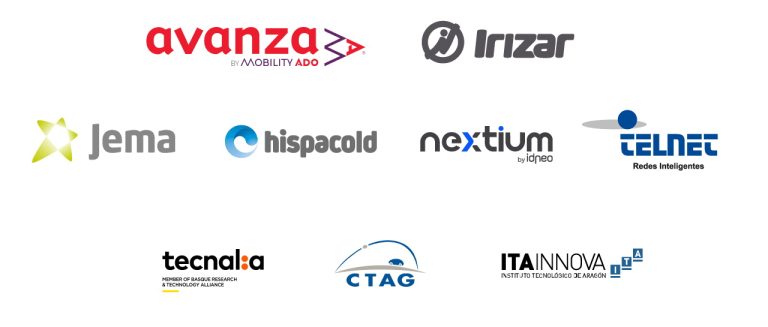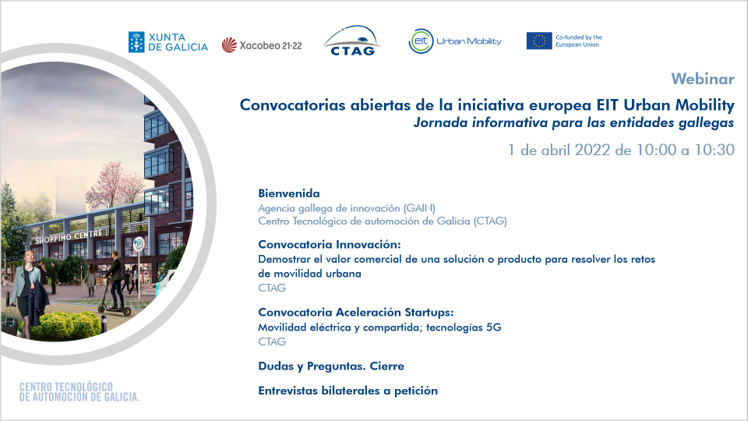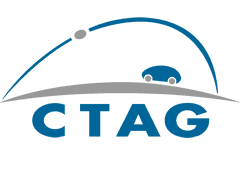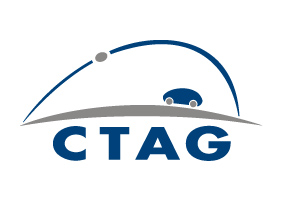Sorry, this entry is only available in European Spanish. For the sake of viewer convenience, the content is shown below in the alternative language. You may click the link to switch the active language.
 Se trata de un proyecto de dos años de duración, liderado por Avanza en colaboración con el Ayuntamiento de Zaragoza. DIGIZITY nace como el proyecto más ambicioso de investigación industrial para diseñar e implementar soluciones innovadoras con el objetivo de descarbonizar, digitalizar y automatizar el transporte urbano con autobuses cero emisiones.
Se trata de un proyecto de dos años de duración, liderado por Avanza en colaboración con el Ayuntamiento de Zaragoza. DIGIZITY nace como el proyecto más ambicioso de investigación industrial para diseñar e implementar soluciones innovadoras con el objetivo de descarbonizar, digitalizar y automatizar el transporte urbano con autobuses cero emisiones.
En el proyecto participarán junto a CTAG cinco empresas (IRIZAR, JEMA, HISPACOLD, TELNET e IDNEO-FICOSA) y otros dos centros tecnológicos (ITAINNOVA, de Aragón y TECNALIA, del País Vasco). Esto supone la integración de la cadena de valor de uno de los segmentos del sector de la automoción: el transporte en autobús. Uniendo, de esta manera, fabricantes de autobuses, motores, componentes y sistemas embarcados, equipos de telecomunicaciones y un operador de grandes flotas.
Los objetivos del proyecto son claros: uso de vehículo inteligente y autónomo, proyecto de H2, conectividad 5G y Wifi6, infraestructuras tecnológicas y smartcities, Inteligencia artificial y soluciones de última generación para usuarios.
DIGIZITY se enmarca dentro del modelo integral del Ayuntamiento de Zaragoza dirigido a crear una ciudad cero emisiones y a impulsar una movilidad sostenible con la transición del vehículo privado al transporte público. Se trata de un proyecto pionero, tanto a nivel nacional como internacional probando más de 50 productos, sistemas y subsistemas, dirigidos a lograr un transporte público más limpio, más eficiente y más cómodo.
Más información en https://avanzagrupo.com/avanza-ayuntamiento-zaragoza-digizity/
Proyecto financiado por la Unión Europea – NextGenerationEU a través de la convocatoria para el año 2021 Programa Tecnológico de Automoción Sostenible, en el marco del Plan de Recuperación, Transformación y Resiliencia y del Programa Estatal para Catalizar la Innovación y el Liderazgo Empresarial del Plan Estatal de Investigación Científica, Técnica y de Innovación 2021-2023 promovido por el Centro para el Desarrollo Tecnológico e Industrial (CDTI):


Título del proyecto: DIGIZITY – 0: INVESTIGACIÓN INDUSTRIAL DE SOLUCIONES INNOVADORAS PARA DESCARBONIZAR, DIGITALIZAR Y AUTOMATIZAR EL TRANSPORTE URBANO CON AUTOBUSES 0 EMISIONES
Acrónimo: DIGIZITY
Líder: AVANZA ZARAGOZA SAU
Socios participantes: AVANZA SPAIN, S.L., IDNEO TECHNOLOGIES, S.A., INTERNACIONAL HISPACOLD, S.A., IRIZAR, S.COOP., JEMA ENERGY, S.A. y TELNET REDES INTELIGENTES, S.A.
Organismos de Investigación: ITAINNOVA – Instituto Tecnológico de Aragón, Fundación TECNALIA Research & Innovation y CTAG – Centro Tecnológico de Automoción de Galicia.
Presupuesto total del proyecto: 9.094.670,00€.
Subvención otorgada: 5.440.703,35€.
Duración del proyecto: 01/11/2021 – 31/12/2023.


















